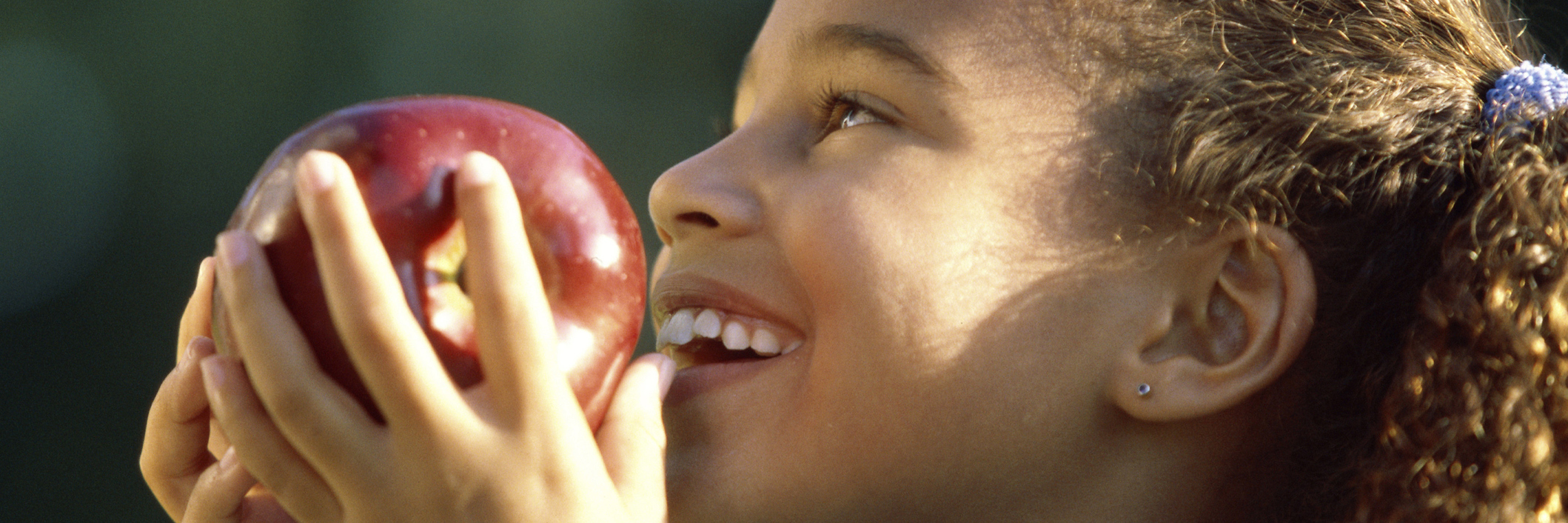8 Ways to Get Kids Excited About Health and Wellness
When your kids feel good, you feel good. Even while negotiating today’s hectic family lifestyle, it doesn’t have to be a major enterprise to assure fresh nutrition, ample exercise, proper skin and tooth care.
Below, you’ll find simple tips to help not only keep your child healthy, but spark a lifelong enthusiasm for remaining that way.
1. Practice, don’t preach.
You are your child’s first and most consistent role model. Children imitate what they see and do so repetitively. Instead of verbally teaching your child the importance of hygiene and fitness, live it! Leading by example helps maintain your well-being and shapes that of your child.
2. Use concrete examples.
Try to keep your reasoning for various healthy habits specific and real. Drinking plenty of water, for instance, replaces the sweat from exercise. Eating fruit helps give your child energy, and cleaning up keeps harmful germs away. Such examples are meaningful and therefore easier for your child to understand than traditional “because it’s good for you” explanations.
3. Emphasize feel-good aspects.
Do you take a shower to help wake up? Is it relaxing and refreshing to bathe? Do you love it when your teeth feel smooth and your hair is tangle free? Sprinkle such thoughts liberally into your daily exclamations around the kids. Soon, they might be asking if they can please take a shower to feel better.
4. Have fun!
There’s no better way to introduce new behaviors and solidify them into a routine than adding a good dose of fun into the experience. How many crazy faces can you make in the mirror while brushing teeth the recommended length of time? Play “detective” to make sure teeth are thoroughly clean. Use floss as a banjo string and see if your child can elicit mouth music.
Did you know you can use bar soap to write “secret” messages on shower glass doors? See if your child can write backward so everyone can see the note once the steam clears. Consider hanging a mirror in the shower stall so your child can practice funky shampoo hairstyles.
5. Encourage child choice.
Give your child decision-making power over several acceptable options whenever possible. Incorporate your child’s requests when planning meals, or simply pulling out snacks for the road. Ask about flavors for smoothies and sandwich fixings. If your child feels ownership over what is available, you can enjoy relaxed meals — no matter where they occur.
6. Keep it hands-on.
Active involvement is essential. The best way to form healthy habits is to practice them routinely. Kids love helping out in the kitchen — sometimes the messier the activity, the better! Consider child-friendly recipes that encourage your child to prepare with flair.
Remain faithful to child-oriented body and tooth care products, even if they clutter bathroom space. Smaller bottles and thicker grips allow your child to be more independent in their self-care.
7. Be positive.
It’s not always easy to remain active without complaint. Workouts can be difficult to fit into work and school schedules, and organized sports can be demanding. Try to keep your comments upbeat and complimentary. Applaud your child’s efforts without criticism, and be patient with your own struggle. Identify with feelings of exhaustion or soreness, but do not give in to them. It’s important to be helpful and involved in your child’s activity while remaining mindful of your own.
8. Use popular culture.
Highlight the healthy habits of admired cultural role models. Set aside family time to enjoy sporting events together. Can you identify athletes your child looks up to? Learn about their goals and training. Allow their public journey to inspire the personal experience of your child.
In today’s ever-changing world, health recommendations and guidelines continuously vary according to updated findings and studies. But the process of maintaining a healthy lifestyle does not. Rest assured, the priceless gift of enthusiastic well-being will benefit your child for a lifetime.
We want to hear your story. Become a Mighty contributor here.
Thinkstock image by Purestock

